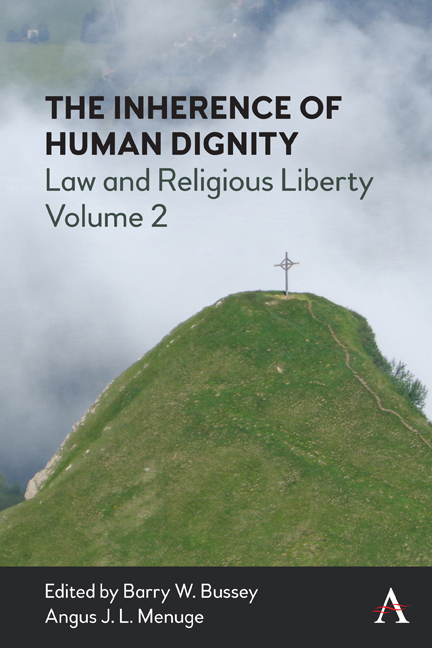Chapter Two - Abstract Language and Invisible Associations: The Necessity for Clear Language to Maintain Genuine Rights and Freedoms
Published online by Cambridge University Press: 24 February 2022
Summary
Introduction: The Questions of Politics, Law and Religion in Relation to Lived Associations and Genuine Diversity
The Congress at which an early version of this chapter first appeared sought to address ‘dignity, democracy and diversity’ and hosted a workshop on the ‘Inherence of Human Dignity’ within which initial drafts of this and other chapters in this volume appeared. I could not help but observe at the time that on the list of recent additions for other workshops at that conference was one entitled: ‘The Advance of Conservative Tendencies in the Western World and the Risks for Democracy’. Clearly, what is meant by terms such as ‘diversity’ and ‘conservative’ and what might constitute ‘risks to democracy’ seemed very much to turn on how one envisions the state (law and democracy) and its functions and limits. For some people, terms such as ‘dignity’ and ‘diversity’ no longer describe the same sorts of things and so their nature and application are going to be widely disputed at a World Congress of this sort or, in fact, in the legal courtrooms or political chambers of nation states. All individuals are, in essence, part of a universal, shared humanity which is not defined by race, sex or religion as these are, strictly speaking, accidents not essences. So shared human dignity is defensible on the basis not of subordinate parts of group identity but, rather, in relation to the very essence of what constitutes humanness. Lest this be misunderstood, this is not to say that subordinate aspects, such as religious beliefs or national citizenships, are not important but, rather, to see them in relation to what is shared foundationally.
It is my argument that the essence of what constitutes humanness is the ability to believe differently and act on those beliefs despite the homogenous forces that use state power for conformity all the while employing the language of ‘equality’, ‘diversity’ and ‘inclusivity’. Such forceful use of language can tend to weaken or even obliterate the different moral traditions that make us human. My argument here begins by pointing out that human dignity requires both a restricted self and a universal understanding.
- Type
- Chapter
- Information
- The Inherence of Human DignityLaw and Religious Liberty, Volume 2, pp. 27 - 44Publisher: Anthem PressPrint publication year: 2021



